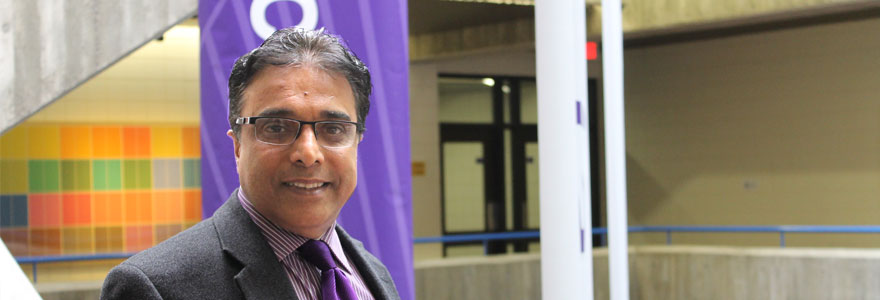News and Updates
Contact
Faculty of Social Science
Social Science Centre
Room 9438
Western University
T. 519-661-2053
F. 519-661-3868
E. social-science@uwo.ca
Powerful CEOs and Dividend Policy
March 29, 2022
Photo and story by Rob Rombouts
Powerful CEOs are considered risky in capital markets - hard to control and more likely to waste resources – but these same CEOs can burnish their reputation by paying out dividends to stockholders when the net value of the reputation is positive. That is the finding in Shahbaz Sheikh’s latest article.
The article, ‘CEO power and the likelihood of paying dividends: Effect of profitability and cash flow volatility’, recently published in the Journal of Corporate Finance, examined the specific business situations impacting how and when powerful CEOs tend to pay dividends.
The research was particularly focused on CEOs who were determined to have high levels of power emanating from structural, ownership and expert dimensions.
Structural power can be measured through CEO pay relative to the management team, , the ratio of independent directors on the board, and whether the CEO is also president and/or chair of the board.
“CEO power indicates poor governance” said Sheikh, professor in the DAN Department of Management & Organizational Studies. “If the board elects you, the board should not be influenced by you.”
If a CEO owns a large portion of the company, particularly if they are the original founder of the company, they often have high levels of power.
If a CEO has been in the position for a long time, and has been successful, they will be powerful. “If a CEO has been able to maintain a profitable company, their team won’t challenge the decisions they make,” said Sheikh.
While powerful CEOs may benefit from the freedom to act and direct the company without resistance, there are costs to their power. A powerful CEO is considered harder to control, less likely to be monitored, and more likely to waste resources on ‘pet projects’. These all represent increased risk to investors and the equity market. In response to this risk, companies with powerful CEOs face higher borrowing and financing costs.
One way for companies to control a CEO is to pay dividends to shareholders. Paying dividends reduces the cash-on-hand available within a company, reduces the ability of CEOs to undertake their pet projects, and limits the resources available to them, Sheikh said.
Despite this, Sheikh found there are specific instances when CEOs are likely to pay out dividends.
However, if a company experiences low profitability, and high cash flow volatility, the company, and therefore the CEO, would have less control over their investment decisions. This means there will be less cash available for new investments or CEO projects.
These CEOs know that if they turn to the equity market to fund these projects, they will have to pay higher rates. Faced with the prospect of turning to the equity or capital markets, a CEO will look for ways to lower the cost of financing.
If, however, they can signal to the market that they are responsible with shareholder money, they will be able to get equity at a lower rate.
They can signal this and improve their reputation by paying dividends to shareholders.
“If they pay dividends, they will have a better relationship with shareholders and will be able to get equity at a lower rate,” said Sheikh. “It is a game between the powerful manager and the shareholder. They only pay dividends when the benefit of improving relationships is higher than the cost.”
Sheikh said this work could be a reference paper for future work on dividend policy, as it expands the understanding of how powerful CEOs approach dividends. “Even CEOs who have the power of not paying dividends to shareholders could benefit shareholders when they need to go to equity market,” he said.

